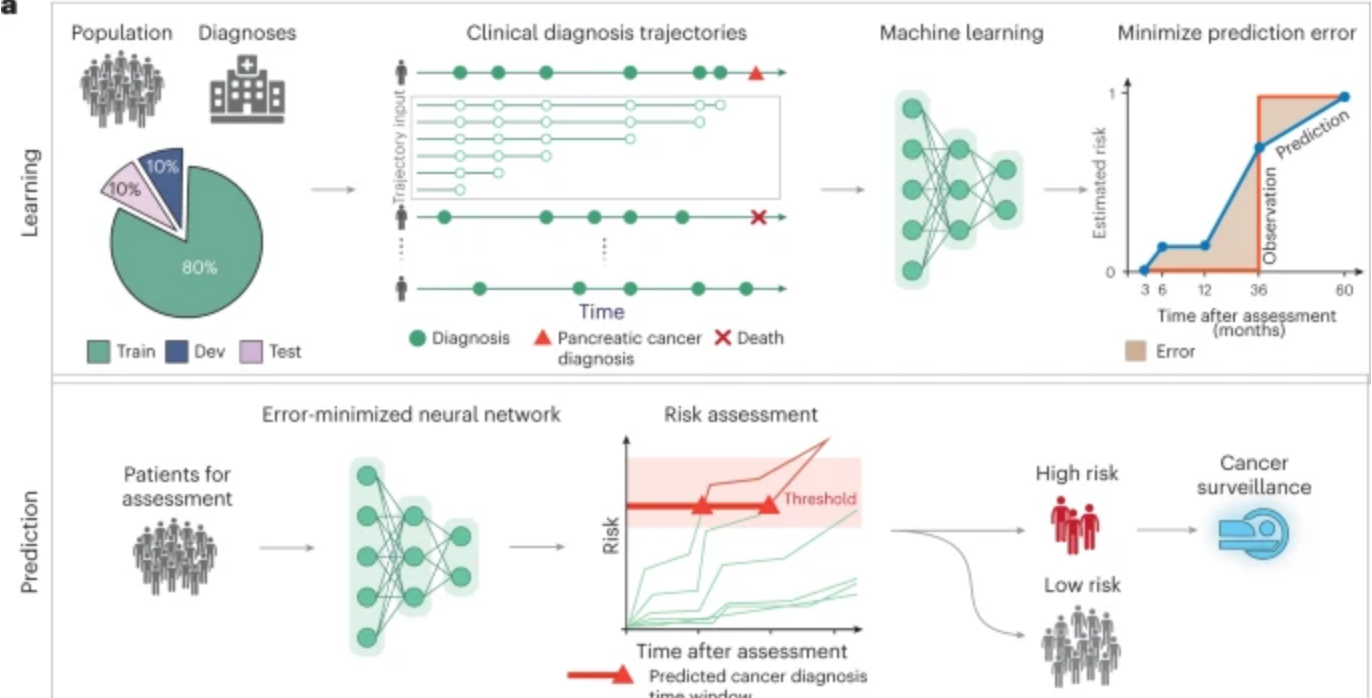Harvard professor Chris Sander used clinical data from 6 million patients in Denmark’s national health system and 3 million in the U.S. VA system to train an AI model to predict the occurrence of pancreatic cancer within 3, 6, 12, and 36 months. This could allow wider screening for the aggressive disease, which is often discovered at a late stage, including in people with no known genetic risk.
The researchers believe that data from imaging, genetic, and wearable devices could further improve this tool, and that unrelated disease histories, including diabetes and substance abuse have already improved its accuracy.
Join ApplySci at MIT for the 14th AI+ Deep Tech + Neurotech conference on the future of healthcare on September 18, 2023
